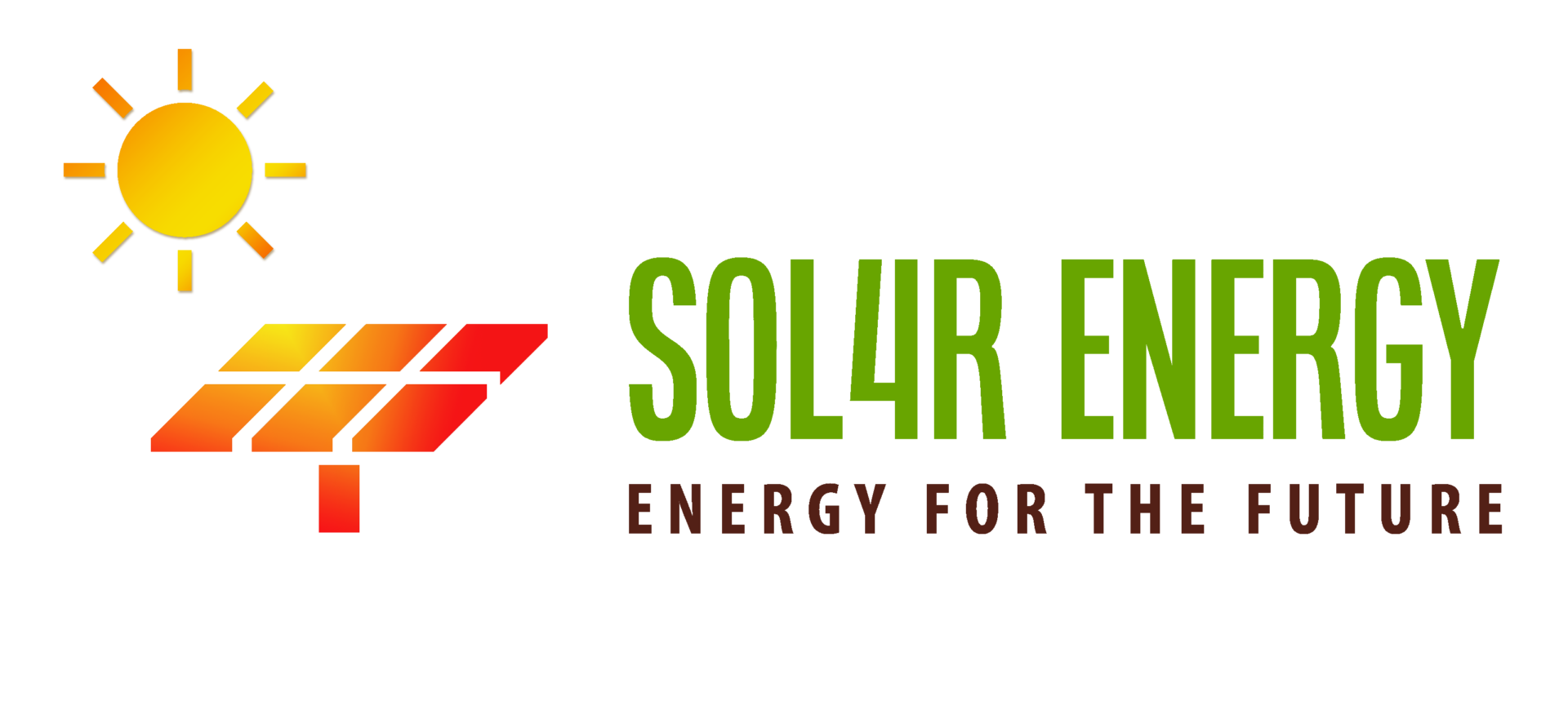SOLAR ENERGY SYSTEM
Discover the wonders of a solar energy system, an eco-friendly solution that taps into the boundless power of the sun.
WHAT IS SOLAR ENERGY SYSTEM?
A solar energy system is a renewable energy technology that converts sunlight into usable electricity. By harnessing the sun’s energy, this system offers an eco-friendly alternative to traditional fossil fuels, reducing carbon emissions and mitigating the impacts of climate change. Solar energy systems consist of various components working in harmony to capture, convert, and store solar energy.
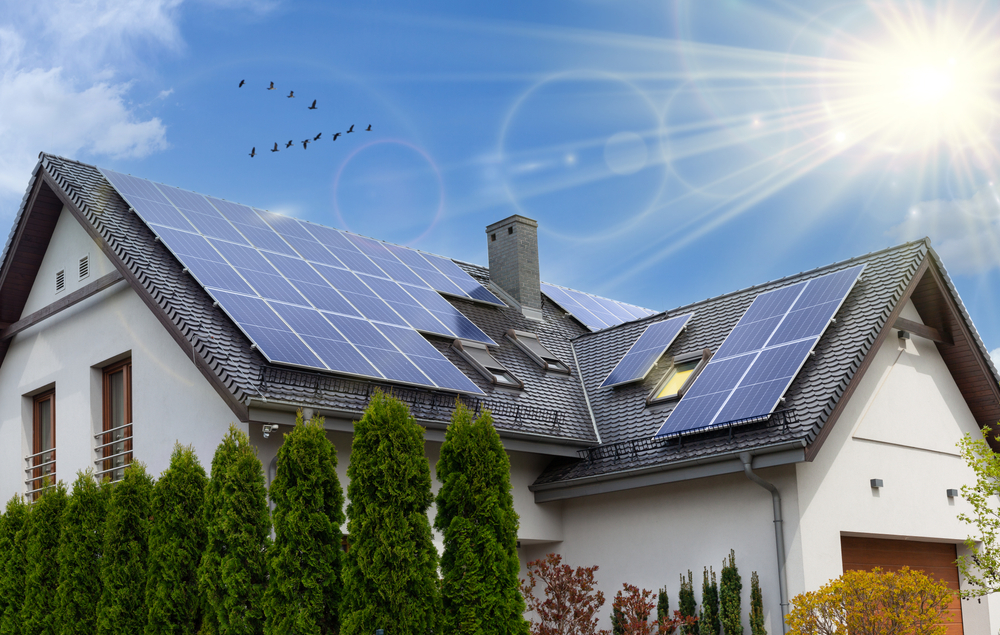
Main Components of a Solar Energy System
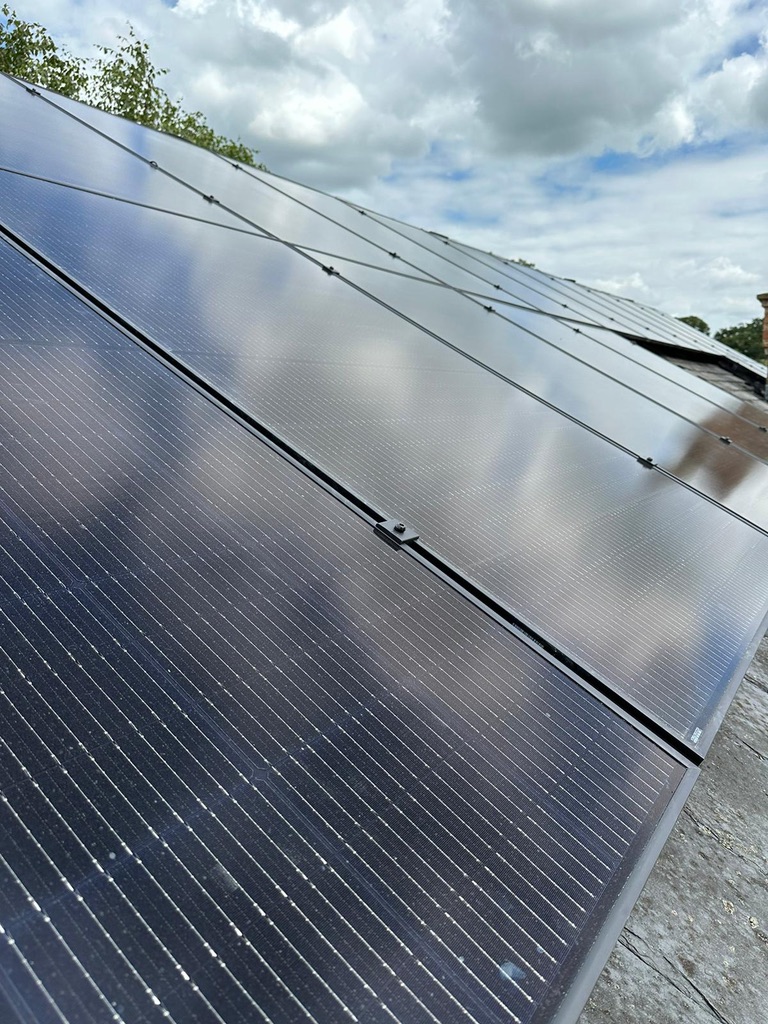
Solar Panels
Solar panels, also known as photovoltaic (PV) panels, are the heart of a solar energy system. These sleek, semiconductor devices are composed of numerous solar cells that absorb sunlight and convert it into direct current (DC) electricity. The efficiency of solar panels is constantly improving, enabling higher energy production and quicker return on investment.
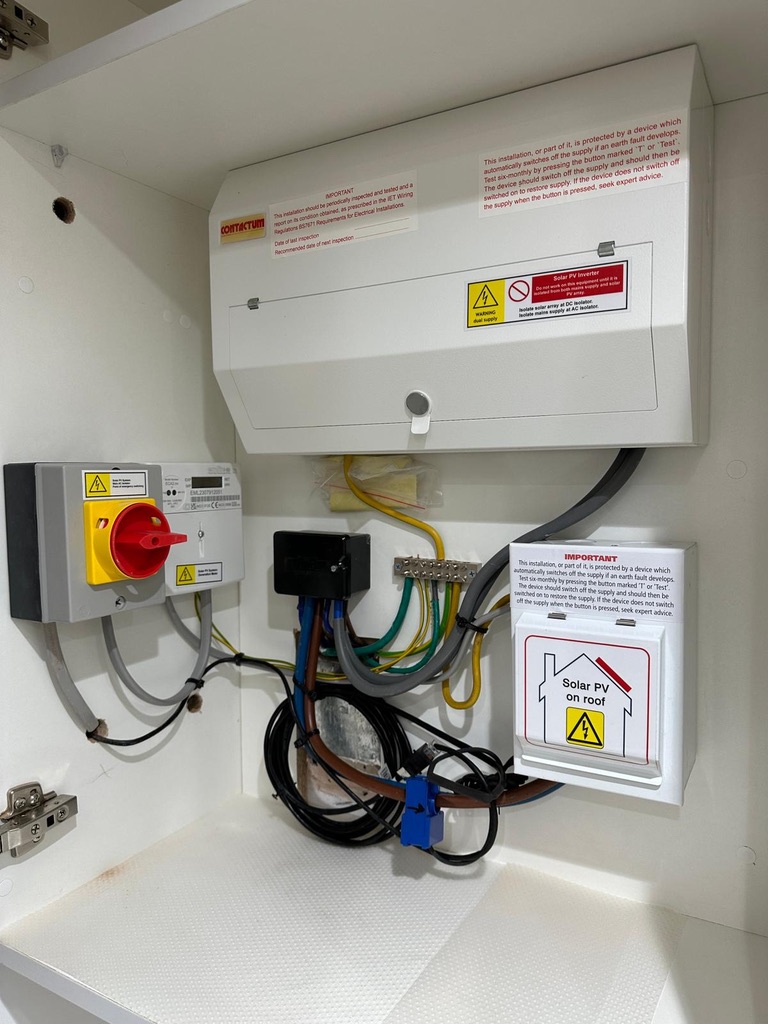
Fuse Box
The fuse box acts as the central hub that distributes electricity throughout your home. When a solar energy system is installed, it typically connects to the fuse box to integrate the solar-generated electricity with the main electrical system of the property.
The fuse box manages the balance between the electricity generated by the solar panels and the electricity consumed by the building’s electrical loads. If the solar panels produce more electricity than the building’s current demand, the excess power is either stored in batteries (if the system has energy storage) or fed back to the grid.
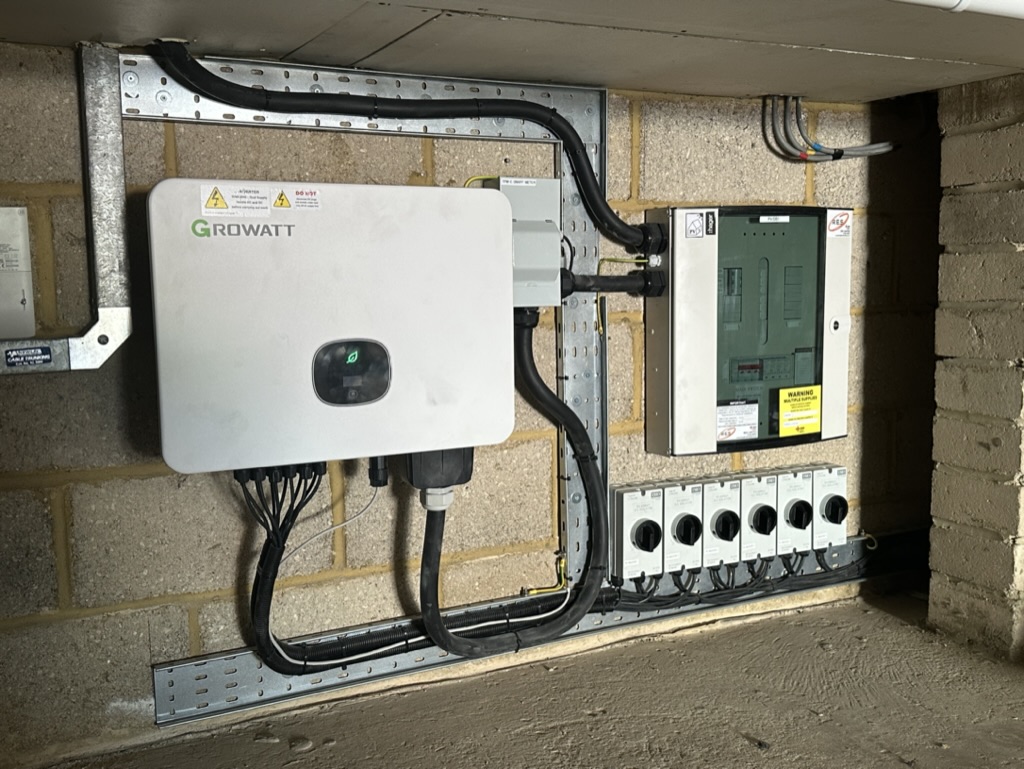
Inverter
The DC electricity generated by solar panels cannot be directly used by most household appliances and the power grid. Here’s where the inverter comes into play. It converts the DC electricity into alternating current (AC) electricity, making it compatible with standard electrical systems and usable by homes and businesses.
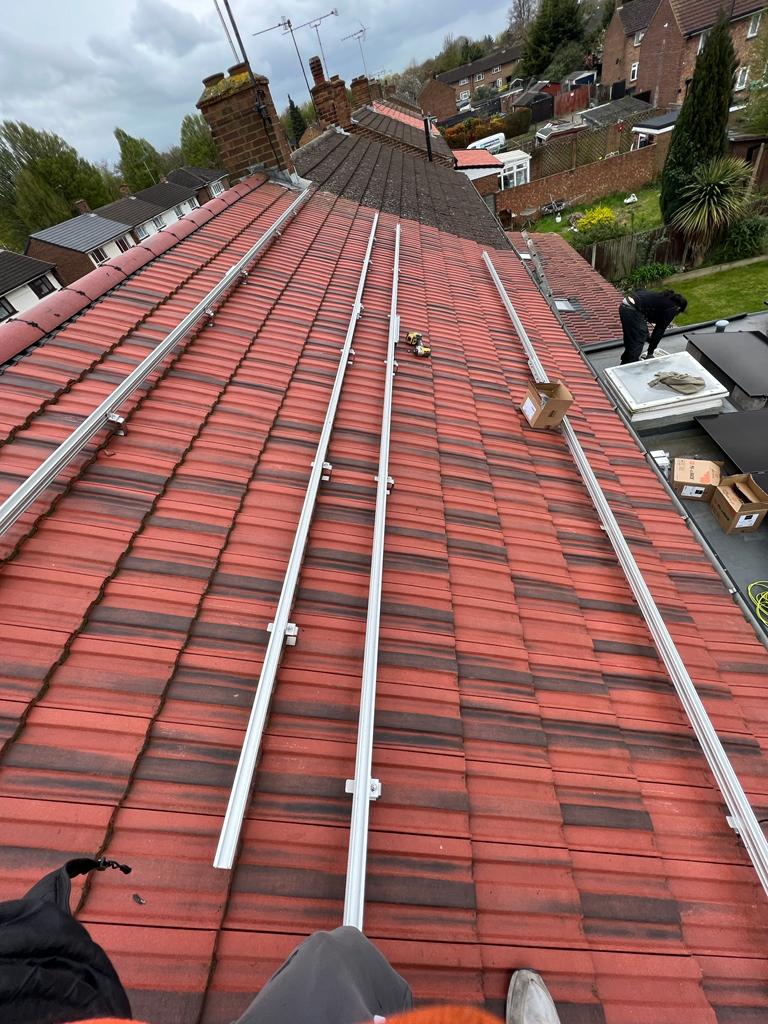
Racking and Mounting
Solar panels need to be securely installed and positioned to capture the maximum sunlight. Racking and mounting systems ensure proper alignment and tilt of the panels on rooftops or the ground, optimising their exposure to sunlight throughout the day.
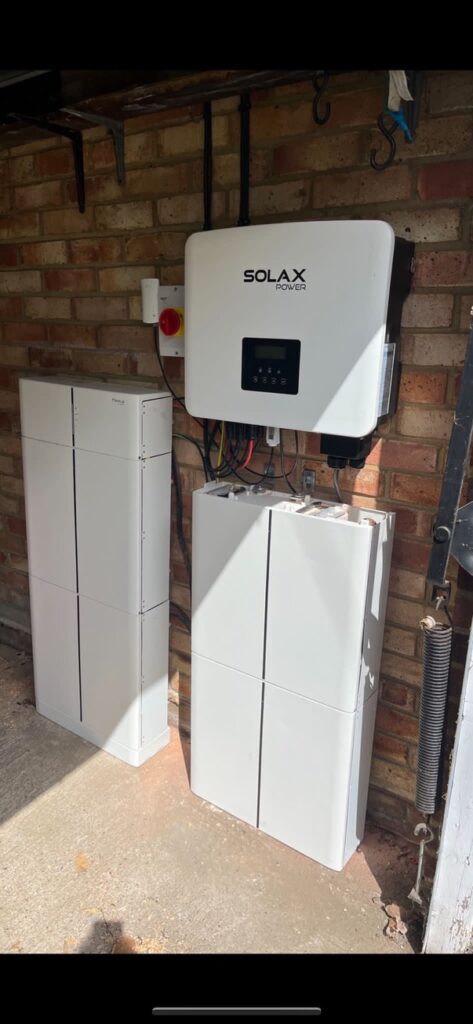
Solar Batteries (Optional)
Solar batteries are optional solar energy storage solutions. These batteries store excess electricity generated during sunny periods for later use when the sun is not shining, such as during nighttime or cloudy days. This enhances energy independence and resilience, reducing reliance on the traditional power grid.
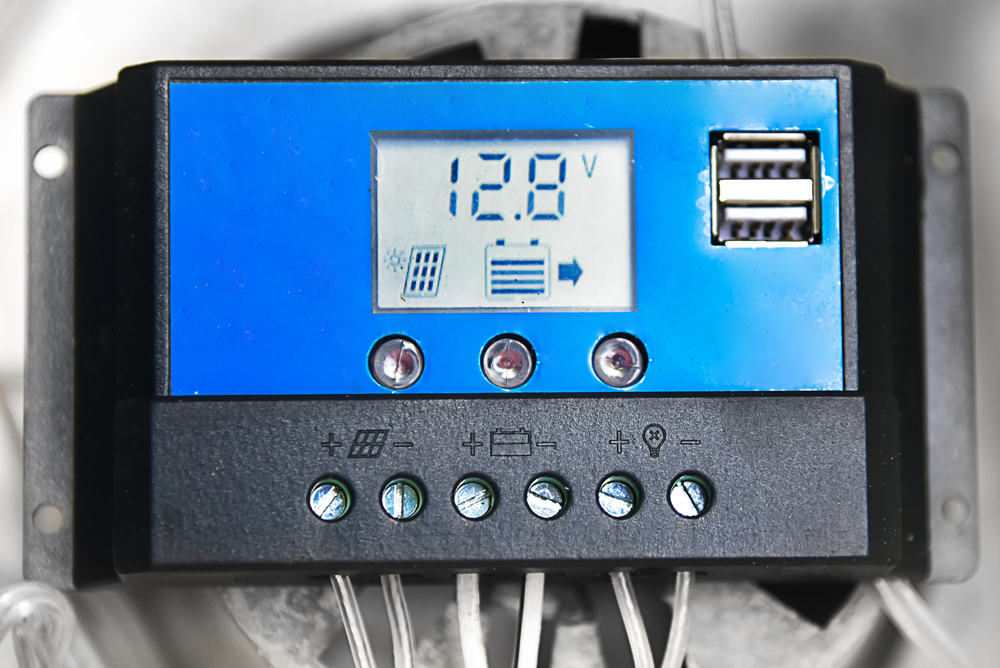
Charge Controller
For systems with batteries, a charge controller regulates the flow of electricity between the solar panels, batteries and inverter. It prevents overcharging or damage, ensuring the longevity and efficiency of the batteries.
SOLAR PANELS
Solar panels consist of photovoltaic (PV) cells made from layers of silicon and other materials. When sunlight strikes these PV cells, it triggers the photovoltaic effect, exciting electrons in the silicon and generating an electrical current. However, the electricity produced is direct current (DC), which isn’t compatible with the alternating current (AC) used in homes and businesses.
To make it usable, the DC electricity from the solar panels is directed to an inverter. This crucial device converts the DC electricity into AC electricity, ready to power your home or business. The AC electricity is then sent to a switchboard or electrical panel, facilitating distribution to the various circuits in your property.
Any excess electricity generated but not utilised can be stored in batteries for future use or sent back to the grid. For optimal performance, installing solar panels in locations with abundant direct sunlight throughout the day is essential. Also, positioning them at an angle that maximises sunlight exposure will help maximise the electricity generated.
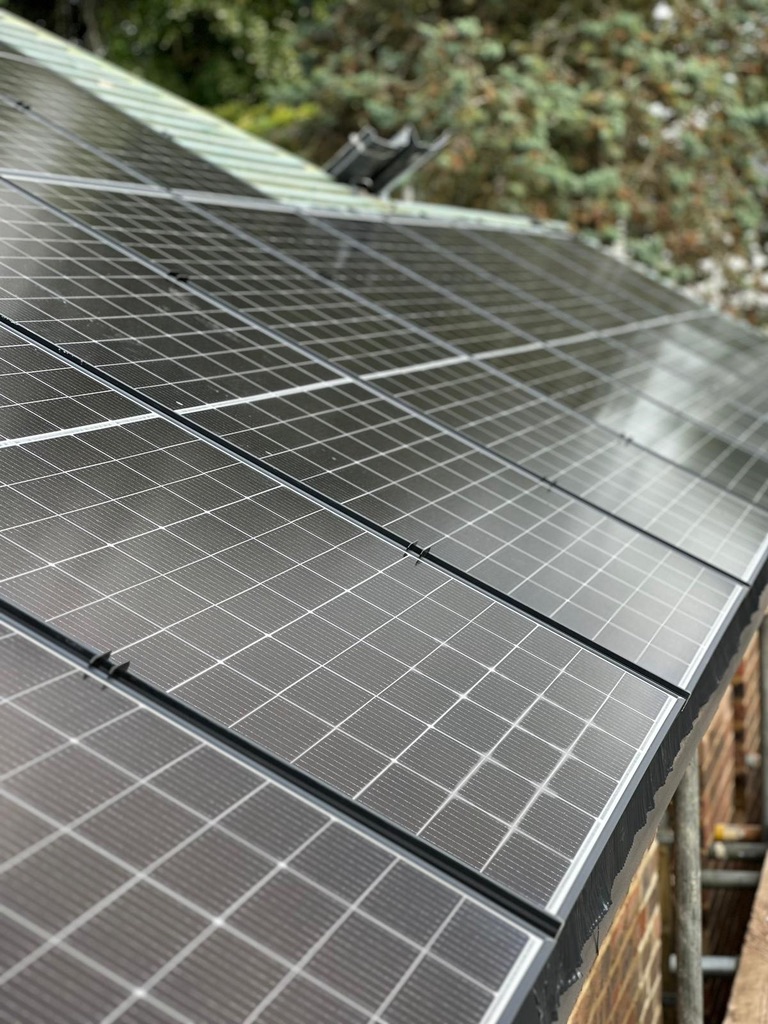
Different Types of Solar Panels
SOLAR BATTERY
Solar battery storage allows you to store excess electricity generated by your solar panels, ensuring energy availability when the sun isn’t shining. This solution fosters energy independence, reduces costs, and offers reliable backup power during outages. Typically composed of efficient lithium-ion batteries akin to those used in electric vehicles, solar battery storage systems effectively capture and discharge large amounts of energy.
When your solar panels produce surplus electricity, it’s seamlessly directed to the battery storage system for later use, helping you avoid costly grid electricity during peak periods. Besides providing power during outages, solar battery storage empowers you to manage energy consumption smartly. By programming your system to charge during off-peak hours, you can save money on energy bills and lower overall usage.
Embracing solar battery storage optimises your solar panel investment, maximises energy independence, and significantly reduces your carbon footprint. With proper installation and maintenance, these systems offer reliable backup power, substantial energy savings, and a greener, more sustainable future.
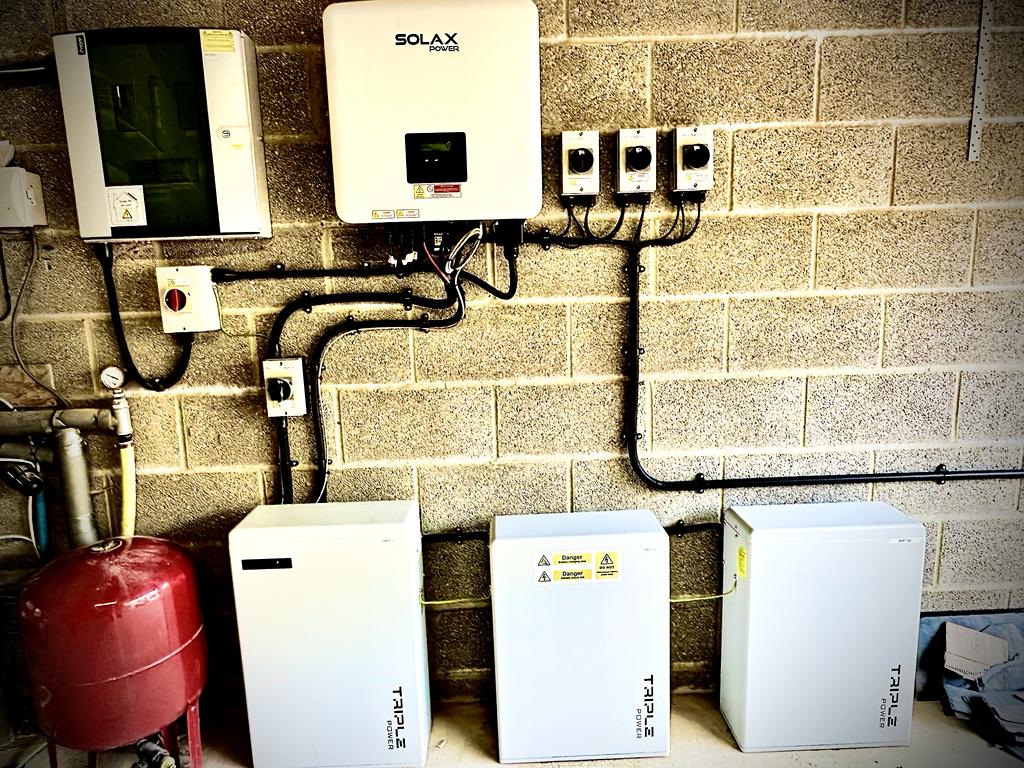
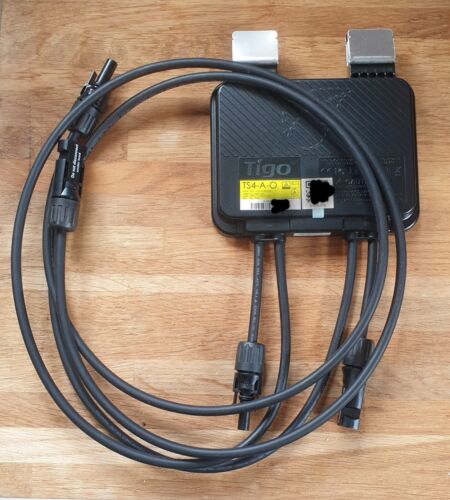
SOLAR OPTIMISERS
Solar optimisers are an advanced technology used in conjunction with solar panels and inverters to optimise energy production and system performance. They are installed on each individual solar panel, allowing them to work independently. By tracking the performance of each panel separately, optimisers ensure maximum energy harvest even in partially shaded conditions.
Optimisers enable real-time monitoring and detection of panel malfunctions or inefficiencies. This facilitates prompt maintenance, ensuring the system operates at peak efficiency. In addition, they improve system safety by reducing the risk of fire or damage due to hotspots caused by shading or panel issues.
By reducing power losses and improving overall system efficiency, solar optimisers contribute to increased energy production and a higher return on investment.
Solar Energy Myths
Solar Energy System is Too Expensive: While solar panels’ initial investment may have been costly in the past, advancements in technology and increased market demand have significantly reduced prices. Additionally, various financing options and government incentives make solar energy more accessible and affordable for homeowners and businesses.
Solar Panels Don’t Work in Cloudy or Cold Climates: Solar panels can still generate electricity in cloudy or cold climates. While direct sunlight is optimal, panels can harness diffused sunlight during overcast days. Moreover, solar panels work more efficiently in colder temperatures, further debunking this myth.
Solar Panels Cause Roof Damage: Properly installed solar panels do not damage roofs. In fact, they can protect roofs by providing shade and reducing exposure to the elements, potentially extending the roof’s lifespan.
Solar Energy Systems Require High Maintenance: Solar energy systems are relatively low maintenance. While regular cleaning and inspections are essential, modern systems are designed to be durable and reliable.
Solar Panels Contribute to Global Warming: On the contrary, solar energy helps combat global warming by reducing greenhouse gas emissions. Solar panels generate clean electricity, minimising the carbon footprint associated with traditional fossil-fuel-based power sources.
